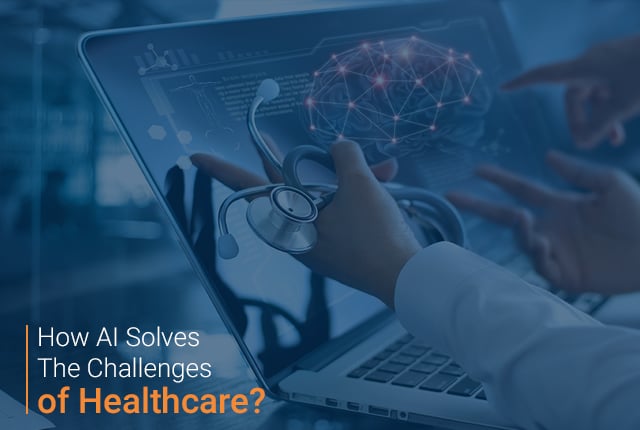
In the last decade, AI has become a powerful agent in bringing metamorphosis in the healthcare industry.
AI is assisting healthcare professionals to tackle the following problems:
- AI Builds Virtual Assistants: In the healthcare industry, AI plays a vital part as it aids in treatment. It assists professionals and healthcare workers in their daily routines. Also, patients can get help from virtual assistants without going to the doctor in person.
- Ease of Access For Better Healthcare: Digitization in AI has facilitated faster diagnosis in remote areas as it alleviates the deficit of professionals in remote working. AI helps in providing enhanced preventive care and quality of life, producing more accurate diagnosis and treatment plans, leading to overall improved outcomes for patients.
- AI in Emergency Services: AI-powered robots assist in surgery to attain perfection, flexibility, and control.
- Pharmaceutical and Drug Development: AI helps in the development of new treatments and drugs. It also aids in understanding immuno-sequencing. The technology can dissect data from a wide variety of sources such as clinical trials, genetic records, and patient health history. So, this is a more efficient and effective way to bring new drugs to the market.
- AI in Medical Research: AI helps stop 'data hemorrhaging.' It breaks down data silos and connects the information in minutes.
- Early Detection of Ailments: AI can identify anomalies and diseases even before experts can detect them. In fact, AI-powered machines have achieved a 95% detection rate, while human doctors achieved an accuracy rate of only 87% for their diagnosis. Early detection could reduce the wait time for a patient who needs surgery.
- AI in the Treatment of Mental Health: When doctors are trying to ascertain the level of brain damage in case of trauma, they rely on AI-powered machines, which, in most cases, are nearly 90% accurate.
- Increased Accuracy: Quality assurance companies provide bug-free applications which play a vital role in the healthcare industry as health is the major priority for people.
- Predict And Track the Data: AI can predict and track the spread of contagious diseases by analyzing data from healthcare departments and other sources. As a result, AI plays a crucial part in global public health by being a handy tool for predicting and preventing epidemics and pandemics.
- AI-assisted Surgery: The development of AI-powered surgical systems can accurately perform the tiniest movement with perfect precision. These surgical systems can perform complex operations, therefore reducing wait times, as well as complications. AI can be used to give the patient the best possible health outcomes.
- Cyber Security: The healthcare sector is frequently targeted by cyber criminals. To avoid downtimes and data breaches, healthcare associations are stepping into AI-powered security.
- Alerts And Location Tracking: Smart medical devices enable real-time tracking of patient data and history which permits hands-on treatments and improves the overall patient care experience. Wheelchairs, scales, and pumps can be easily tracked with AI-powered sensors making it easier for staff to track patients.
Conclusion
The introduction of AI in healthcare has greatly improved the process of diagnosis and delivery of care. With the constant evolution of AI-driven technologies, it's safe to say that medical professionals will come up with breakthrough drugs and treatments that will improve the overall health of patients.


Post a Comment